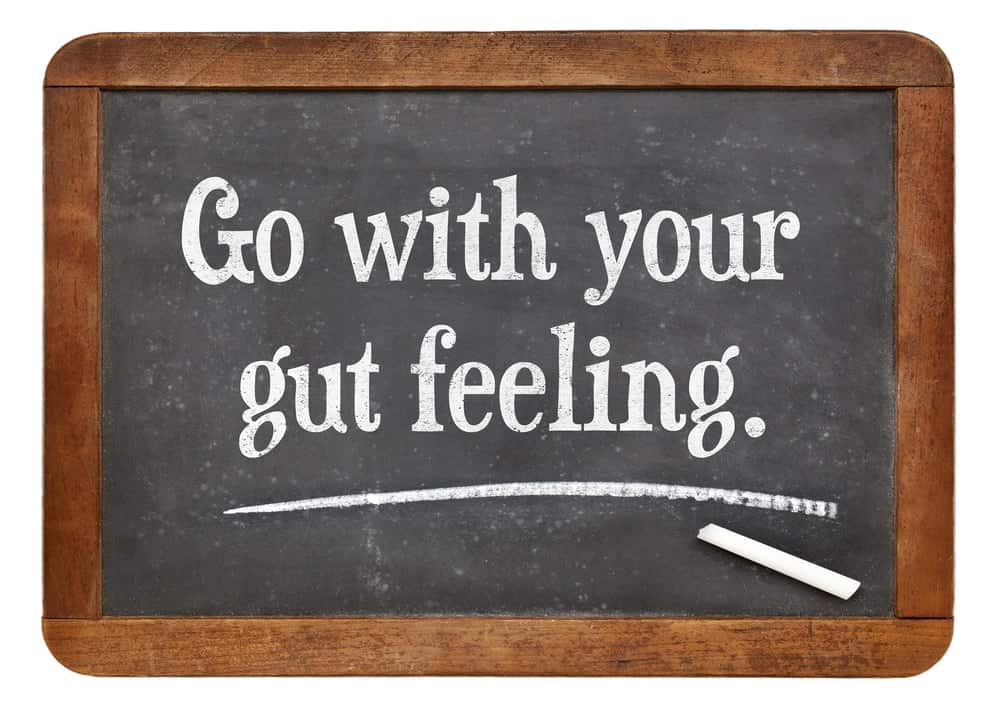Everyone aspires to live a satisfying and fulfilling life. We often identify our aspirations by emulating what others consider satisfying and fulfilling, or as something we might need, often missing the point.
The point is to be our true self and accomplish what we believe to be a productive and pleasurable life. Some essential elements to reach that goal include a healthy lifestyle and a decent dose of exercise to help compliment our mental and social well-being.
These crucial tools will help you sink your teeth into life daily.
There is a third factor that is not so black and white, and that is our mental well-being. Our emotions and feelings. Things happen to all of us, some worse than others, and that is a fact. Integral components used to navigate life and our mental state include our intuition and our feelings.
What Are Emotions And Feelings?
How we feel is subjective. We all react to experiences differently, but we all feel emotions. We all feel something, be it different, but we still feel.
A high degree of pleasure or displeasure will trigger different emotions in people. Certain people will find adversity in something that will be trivial to others. Emotions and feelings are things our bodies experience. They are sensations that make us feel a certain way.
What Is Intuition?
Often, we have this little voice in the back of our minds warning us of things to come, but it’s so subtle, it’s so itsy-bitsy, we rarely pay attention to it. Our intuition is our “consigliere,” our advisor, but it’s unobtrusive. Our intuition has been with us from birth, and its sole aim is to focus on what’s best for us.
For example, you’re introduced to someone through a friend to discuss a business venture. Your intuition tells you to stay away from this guy. Your intuition is your gut, telling you something is not right, but you have no proof of this. You consider the referral comes from a wonderful friend, someone you trust and look up to in the highest regard, so you don’t have the slightest doubt in your mind as the trust you have for your friend has shifted to this new person.
If you experience a fallout with this individual, you then have the proof that your intuition was spot on; you learn to understand your intuition more clearly.
You can’t explain intuition to another person until it happens. Often the term a “gut feeling” is used to describe your intuition. The gut feeling will be correct sometimes; however, if you are experiencing depression, anxiety, or post traumatic stress disorder (PTSD), your intuition may not be helpful as it is tuned in to your experiences and feelings while being depressed, anxious or experiencing PTSD.
So, in these cases, it is vital to take the time to acknowledge your intuition and look at your emotional state.
Is It Intuition Or A Feeling?
Confusion between intuition and feelings arises when we think intuition is a feeling. The confusion is understandable as we physically feel both intuition and emotions in our bodies.
When you meet a dishonest person, you may feel your heart palpitating or a nervous, fluttery feeling in your stomach, both signs and feelings associated with anxiety. The emotions you feel in your body are letting you know something is not right.
Your intuition will warn you, but it won’t decide for you!
That’s the distinction between emotions, which are short-lived and intuition, which is the advisor inside you letting you know danger is lurking ahead, but it doesn’t have a specific feeling. It’s hard to put your finger on it. It’s like the tip of a feather brushing softly against the back of your ear. You know there’s something there, but you can’t explain what it is. You feel the tingle and wonder what it is.
A feeling invites you to believe something.
For instance, you may be in a club and feel someone is watching you. You may see someone you find attractive, and you will feel fidgety and slightly ill-at-ease.
A feeling will not dissipate immediately.
If you fall in love, you can have a constant feeling of joy, the same way, when you lose someone close to you, your grief can last a lifetime, stored somewhere in the back of your mind. Every day we feel things, but most feelings we experience throughout a day are like a roller coaster. They last a few seconds and dissipate, depending on the impact the experience has on us.
Feelings are ephemeral, arriving and leaving on a whim.
How Can Intuition Be Tapped Into?
We want our intuition to speak up like a mentor or coach would when, in fact, it’s just a soft tap on the shoulder. So, to notice this gentle advice, to recognize the difference between our emotions and our intuition, we need to open up our minds to it.
We need to be attentive and listen beyond the hustle and bustle. Intuition is not noisy; it’s almost silent. We experience emotions before, during and after an event, but our intuition can help us decide whether we should even attempt to share the event in question.
Through experiences, we develop behaviors and thought patterns that can have an influence not only on our feelings but also on our thoughts and intuition.
You can tap into your intuition, the same way you can your feelings, thoughts and emotions. Despite our mental state, whether anxious, depressed, or happy, the more mindful we are, the more we become true to ourselves.
The more we practice tapping into our intuition and understanding our life’s purpose and each circumstance, the better our mental health will be. To begin, we can use:
1. Meditation
Meditation is an exercise that quiets the mind, puts it at peace.
I learned how to meditate when I attended Vipassana almost two decades ago, a place that teaches you how to observe your feelings and emotions, instead of experiencing them.
Today, I use meditation to get out of a depressed state. It taught me the law of impermanence and that everything has a beginning and an end, and that nothing lasts forever, affirming you will not be depressed ad infinitum.
Nothing, whether good or bad, lasts forever.
The meditation technique used at Vipassana is simple. You quiet your mind, focus on a part of your body, and disregard any thoughts or tingles you may feel, and eventually you will begin to feel the energy flowing through your body.
Eventually, all the unpleasant experiences will come out. It’s like a spiritual cleansing with no religious connotation. They practice Vipassana in jails in India so convicts with life sentences learn to accept their predicament more easily.
Vipassana centers are located all over the world, and they are free. You can do 10-day retreats where they will feed you a vegetarian diet and you will be exposed to an environment that respects “noble silence”. No cell phones, no pens, nor writing, no TV’s, no music, and no distractions.
Just you, noble silence, your emotions, feelings…, and your intuition.
To find a center in your area you can visit https://torana.dhamma.org/about/international-centres/
2. Ask Questions To Your Intuition Directly
Often, when we get a gut feeling, our intuition, we let it pass us by.
Before deciding when our intuition is poking at us, try asking questions and see what answers come.
The question you ask will vary depending on your situation but may include: Are you warning me this is not a safe person/place? Do you think this person is not telling the truth? Are you concerned about the long-term consequences?
Maybe you will not get an answer, if no answer comes, try asking the questions through visualization and see if you get answers in the morning.
3. Visualizations
I use visualization before sleeping. I like to go to bed and visualize my dream before I fall asleep. I imagine the scene and the characters and what I’ll do in the dream and slowly close my eyes, seeing myself in my imagination.
It’s just a way of falling asleep thinking about something positive instead of being anxious about something else. For instance, I’ll find a setting during the 1940s on a snowy night playing ice hockey in the park with some famous hockey players with them asking me to join their team. It’s a great feeling.
I like to meet with an imaginary wise man who waits for me on a park bench next to a pond. Once again, this visualization process occurs just before I turn out the lights.
I have pre-determined questions I think of before I fall asleep that I will ask him about my life. When I wake up in the morning, more often than not, I feel better about myself. It’s not always like that, but most of the time, it is.
4. Journaling
Another way is to journal.
For example, a few weeks ago, things were not going my way, and my life seemed to go in all directions. I just wanted to scream out my frustrations so the entire world could hear me, but instead, I wrote what I felt, and it resulted in some heavy-duty lyrics.
This technique gets the bad out of me, helps me verbalize it, and I feel better about it afterwards. I’m not suggesting it’s for everyone, but it works for me.
You can use all the above techniques in the same manner if you are dealing with Post-Traumatic Stress Disorder(PTSD).
PTSD is difficult to deal with, and can have life-changing consequences. Examples of events that can cause PTSD include domestic violence, sexual abuse, a violent accident, being assaulted, or time spent fighting abroad. PTSD includes reliving the trauma in your mind.
I have experienced a few violent encounters in my life and afterwards it’s like a movie playing in your mind, repeatedly, and you just can’t get the events out of your head. It’s like you own a video store and it’s the only movie you have for rent. A sudden movement by someone at the grocery store standing in line next to you can trigger the events because it reminds you of what happened.
Every time you see someone who resembles your assailant, you become nervous. You may become paranoid about everything! Your feelings and intuition though real may be a result from the post-traumatic stress and not the situation you are in. Your dreams are terrifying and it feels like these memories will stay with you forever. You constantly think about it and you are always on guard.
Journaling is especially helpful for dealing with PTSD, anxiety, depression or everyday challenges. By journaling, you can connect to your emotions and intuition. You can begin to connect the “body feelings” with an emotion or decide if that “body feeling” is your intuition.
5. Practice Mindfulness Daily
One of the most difficult things to do is to live in the present moment. Most of us live in the past, reminiscing constantly about our memories or in the future, trying to attain our goals. Both are beyond our grasp.
The past is long gone, and the future hasn’t arrived.
If you want a fulfilling life, you must try to live in the present moment as much as possible. This is challenging to do, but very rewarding, it benefits you in so many ways.
Goenka, a teacher of Vipassana says, “If people are unaware of their present, it condemns them to repeating the same mistakes of the past and can never attain their dreams for the future.”
An excellent book on the matter is Eckhart Tolle’s book “The Power of Now”.
The Difference Between A Feeling And Intuition Summed Up:
Feelings are experienced, and they dissipate, and new feelings envelope us, and the cycle repeats itself every day.
Intuition is always there, it’s your awareness, your subconscious telling you something is up. Think of Intuition as being your lighthouse! It’s time to get into the lighthouse and illuminate your life!








